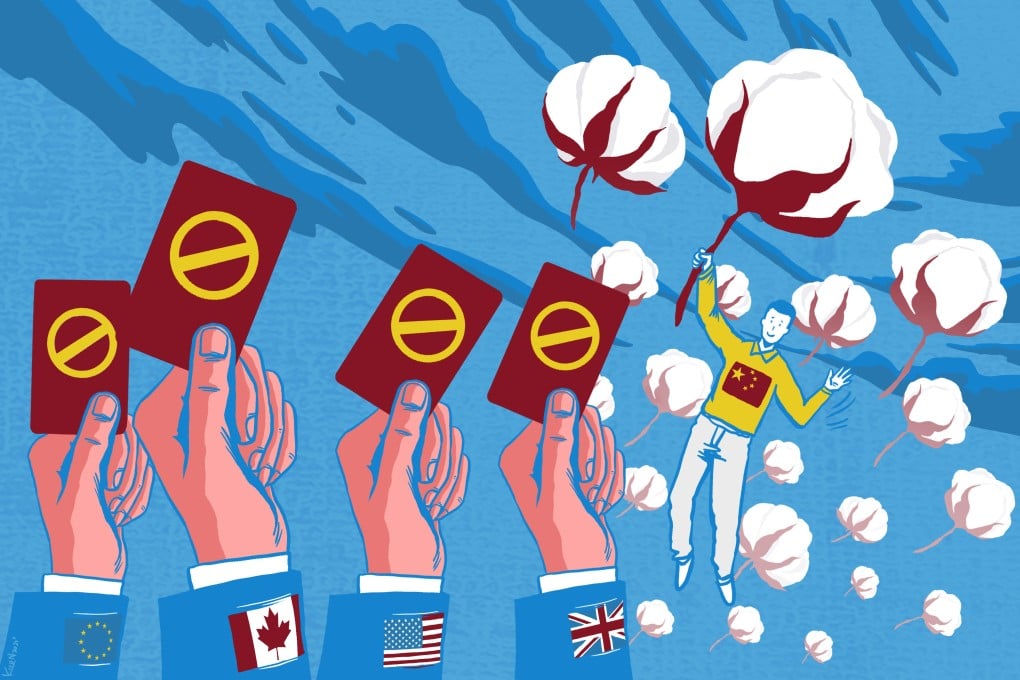Xinjiang: will the West’s sanctions on China force the issue or unravel?
- US, EU, Britain and Canada sanctioned officials for alleged human rights abuses in the region, after previous bans targeting its cotton and tomato products
- As brands and governments argue over claims of forced labour in Xinjiang, producer of a fifth of the world’s cotton, observers debate sanctions’ possible impact

As international pressure on Beijing increases, it remains to be seen whether blacklisting firms and banning imports of Chinese products connected to Xinjiang will have a substantial economic impact. Some observers see the sanctions as merely symbolic objections to growing claims of repression in the region, which are unlikely to be heeded by Beijing.
According to Nick Marro, global trade lead at the Economist Intelligence Unit in Hong Kong, the sanctions would probably not have a discernible macroeconomic impact on China because they were “quite targeted” and carried “more symbolic than economic weight”. The real economic impact also depended on how stringently they would be enforced, he said.
“In effect, these companies had little choice but to disavow the use of Xinjiang cotton in their supply chains,” Marro said. “And that doesn’t even touch on the potential ethical and reputational risks that Western firms might face among their home market consumers.”
